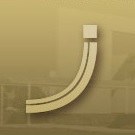Enunciados de questões e informações de concursos
Text I
With this report, our aim is to present initial reflections on diplomacy in the digital age. In the ongoing debate amongst international relations scholars, information and communication technology (ICT) experts, digital strategists, social media advocates and others, the first question for us is: what is happening to diplomacy? And the obvious answer is what has always happened to it: diplomacy is responding to changes in the international and domestic environments, in the main centres of authority, particularly states, and in the character of societies at home and abroad.
“Newness” in diplomacy today has everything to do with the application of new communications technologies to diplomacy. This issue goes right to the heart of diplomacy’score functions, including negotiation, representation and communication. Given the centrality of communication in diplomacy, it is hardly surprising that the rise of social media should be of interest to practitioners of diplomacy. Most of them, like people outside diplomatic culture, are in the process of adjusting their “analogue” habits and finding their own voice in a new information sphere. This takes time, and for technological enthusiasts to simply proclaim the arrival of a “new statecraft” in the form of what is variously termed e-diplomacy, digital diplomacy, cyber diplomacy and “twiplomacy” is too simplistic.
Paradoxically, greater complexity encourages shallow, hurried analyses and the search for simple explanations about what is happening to diplomacy as the regulating mechanism of the society of states. As in other epochs of fast technological change, the lure of quick fixes addressing multifaceted processes of change in diplomacy appears almost irresistible.
Brian Hocking and Jan Melissen. Diplomacy in the digital age. 2015, p. 9. Internet: <www.clingendael.org> (adapted).
Decide whether the following statements are right (C) or wrong (E) according to text I.
In the first paragraph, the words “ongoing” and “advocates” can be correctly and respectively replaced by far-reaching and lawyers without this changing the meaning of the passage.
-
Errado
Outras questões do mesmo concurso: IRBr / Diplomata / 2018


